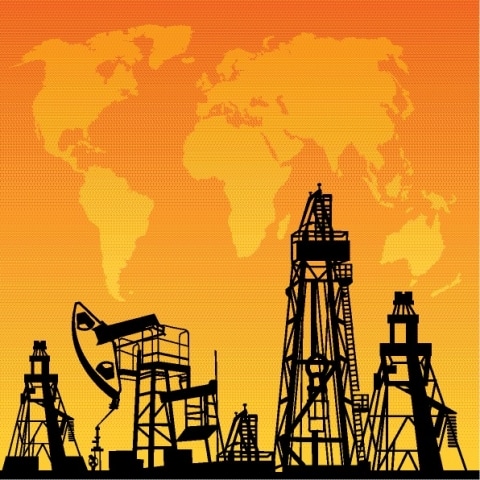The Obama administration has systematically ignored the environmental risks of fracking and on several occasions it has even suppressed science to pave the way for increased shale drilling, according to a recent report by the environmental group Earthworks. The report focuses on Karnes County, TX, in the heart of the Eagle Ford shale region, where state regulators found levels of airborne contaminants so high that inspectors evacuated themselves – but failed to fine the companies involved or warn residents living nearby.
“From the regulators in Texas to the United States EPA, government agencies are running away from their own data showing that fracking pollution is harming communities,” said Jennifer Krill, Executive Director of Earthworks. “We are seeing a pattern from Karnes County TX to Dimock PA to Pavilion WY – where oil and gas is being produced, oil and gas impacts are being ignored.”
For the past several years the oil and gas industry has enticed Republicans and Democrats alike with promises that shale reserves can offer the U.S. renewed energy independence. The hope is that vast and newly-tapped supplies of domestic gas and oil will help shift the geopolitical balance, lessening American and European reliance on Russia and countries in the Middle East. This newly perceived leverage has even emerged recently as a bargaining chip in trade talks and negotiations with gas-importers like Japan.
The Obama administration has hailed the drilling boom, sending strong signals about its support for continued fracking. “The natural gas boom has led to cleaner power and greater energy independence,” President Obama said in his 2013 State of the Union address. “We need to encourage that.”
But banking on the continued shale boom is a major gamble, as productivity has already fallen in shale gas plays across the U.S.
The geopolitical sway promised by a vast new supply of American fossil fuels may be one of the oil and gas industry’s most alluring talking points to politicians. Members of both parties have begun banking on the continuation of the shale boom to promote their agendas both domestically and abroad. Export the gas, they say, and U.S. influence will grow.
Proponents of exporting natural gas are blunt in describing their motivations. ““Allowing our strong allies like NATO and Japan to have access to Oklahoma’s abundant natural gas improves our foreign policy posture and encourages domestic energy expansion,” said Senator Jim Inhofe (R-OK), as he promoted a bill he co-sponsored in January, the“Expedited LNG for American Allies Act of 2013.”
The Trans Pacific Partnership currently being negotiated will have major implications for U.S. natural gas exports to Japan. And the promise of natural gas has been a major incentive for Japan to join that free trade agreement, especially in the aftermath of Fukushima.
“During a visit to the White House last Friday, Prime Minister Shinzo Abe of Japan reportedly discussed two opportunities with President Obama that should be high on his broader second-term foreign policy agenda: A massive multinational trade deal and access to America’s newly abundant shale gas,” Ian Bremmer, author of “Every Nation for Itself: Winners and Losers in a G-Zero World” and David Gordon, former director of policy planning at the State Department, wrote in a New York Times editorial earlier this year. “Abe hopes that improving U.S.-Japanese ties will help his country win negotiating concessions on the trade deal and new energy supplies.
But if plans to export natural gas come to fruition, the U.S. will be staking not just its domestic energy policy, but also its foreign policy on industry projections that the fed’s own experts say are “highly uncertain.”
“Recent innovations have given us the opportunity to tap large reserves –- perhaps a century’s worth of reserves, a hundred years worth of reserves -– in the shale under our feet,” President Obama said in 2011, announcing a plan to slash imports of foreign oil by a third, in large part by relying on fossil fuels from shale oil and gas.
The problem is that the U.S. simply does not have 100 years of shale gas reserves. That myth, though widely repeated in Washington, is based on a misunderstanding of how oil and gas reserves are calculated, and it’s nicely debunked here.
That particular statistic aside, experts from the oil and gas industry and government say that there is considerable uncertainty surrounding shale gas projections over the long run. “Higher volumes of shale gas production are central to … a transition to net exports,” said the Energy Information Administration in the most recent update of its closely-watched Annual Energy Outlook. The agency has warned that the U.S. could become a net importer of natural gas rather than an exporter if shale gas productivity falls short of industry promises. It described shale gas projections as “highly uncertain.”
“Many of the people promoting the 100-year myth were doing it for either financial or political reasons,” Bill Powers recently said in an interview with The Energy Report. “The government has the idea that if the U.S. were to become an LNG exporter through the rapid development of shale, we would lessen the importance of Russia on the world’s stage.”
The flip side, of course, is that if projections fall short, the consequences could be disastrous.
If the U.S. makes its shale resources a cornerstone of its foreign policy, it will be staking the future of U.S. national security to projections federal analysts describe as “highly uncertain.”
Photo Credit: White World Map, Oil rig and oil pump via Shutterstock.
Subscribe to our newsletter
Stay up to date with DeSmog news and alerts







